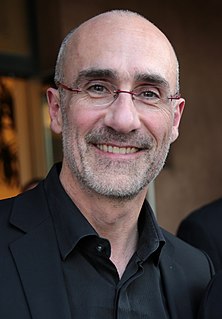A Quote by George Gilder
Welfare now erodes work and family and thus keeps poor people poor. Accompanying welfare is an ideology - sustaining a whole system of federal and state bureaucracies - that also operates to destroy their faith. The ideology takes the form of false theories of discrimination and spurious claims of racism and sexism as the dominant forces in the lives of the poor.
Related Quotes
Somehow, the fact that more poor people are on welfare, receiving more generous payments, does not seem to have made this country a nice place to live - not even for the poor on welfare, whose condition seems not noticeably better than when they were poor and off welfare. Something appears to have gone wrong; a liberal and compassionate social policy has bred all sorts of unanticipated and perverse consequences.
Markets are not, in my opinion, a full solution to any problem. The obvious problem they don't meet is the concerns of the welfare of individuals who may get lost in the operation of the system - the distributional question. We've seen this growing as we go further and further toward a market ideology in the United States and the United Kingdom. We've seen a decline in the welfare of the working poor, leaving aside any other pathologies, just the working poor, a very distinct increase at the very top levels.
Strictly enforce the scale of "fixed responsibility." The first and foremost level of responsibility is with the individual himself; the second level is the family; then the church; next the community, finally the county, and, in a disaster or emergency, the state. Under no circumstances is the federal government to become involved in public welfare. The Founders felt it would corrupt the government and also the poor. No Constitutional authority exists for the federal government to participate in charity or welfare.
General welfare is a general condition - maybe sound currency is general welfare, maybe markets, maybe judicial system, maybe a national defense, but this is specific welfare. This justifies the whole welfare state - the military industrial complex, the welfare to foreigners, the welfare state that imprisons our people and impoverishes our people and gives us our recession.
Welfare mostly subsidizes people in poverty, helping few escape from it. In their hearts, most people who are poor would like to be rich, or at least self-sustaining, but this president never talks about how they might achieve that goal. Instead, he criticizes those who made the right choices and now enjoy the fruits of their labor. Rather than use successful people as examples for the poor to follow, the president seeks to punish the rich with higher taxes and more regulations on their businesses.
For complicated historical and political reasons, we associate 'poor' in our public consciousness with 'black.' Terms such as 'welfare queen' and 'culture of poverty' became associated uniquely with the social maladies of African Americans in urban ghettos, despite the fact that poor whites outnumbered poor blacks.
Whatseems to take place outside ideology (to be precise, in the street), in reality takes place in ideology. What really takes place in ideology seems therefore to take place outside it. That is why those who are in ideology believe themselves by definition outside ideology: one of the effects of ideology is the practical denegation of the ideological character of ideology by ideology: ideology never says, 'I am ideological.'
Conservatives are better talking about opportunity and growth in the abstract, while liberals talk more about poor people. Right now we [americans] need a good, optimistic, conservative opportunity ideology that is totally geared toward lifting up the poor. That's what I most want to see in candidates.
When you live in a poor neighborhood, you are living in an area where you have poor schools. When you have poor schools, you have poor teachers. When you have poor teachers, you get a poor education. When you get a poor education, you can only work in a poor-paying job. And that poor-paying job enables you to live again in a poor neighborhood. So, it's a very vicious cycle.




































